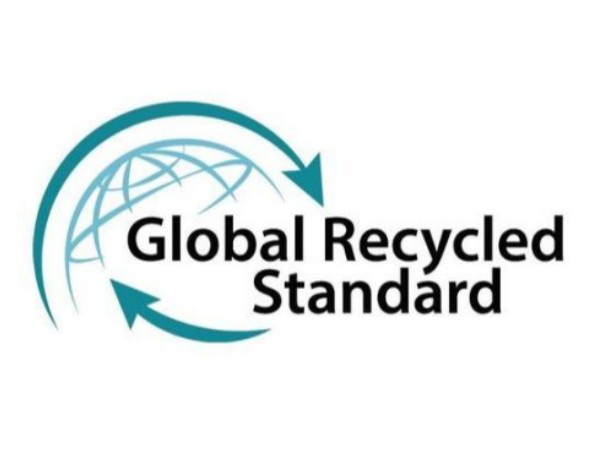[sort:name]
[sort:subname] {/pboot:sort}联系我们

The global recycling standard was first formulated by Shiyou Certification in 2008, and the ownership was transferred to the Textile Exchange on January 1, 2011.
Global recycling standard (GRS) is a voluntary product standard, which is used to track and verify the content of recycled materials in final products. This standard is applicable to the whole supply chain and involves traceability, environmental principles, social requirements, chemical composition and labeling. Through GRS certification, you can convey your commitment to the authenticity of materials to customers, support circular economy, and reduce waste by using it to manufacture new products.
Which ones have passed GRS/RCS certification?
GRS certification is applicable to: spinning, knitting, printing, wool knitting, woven clothing, yarn weaving, dyeing, hats, bags; Granulation in plastic industry (such as ABS, PP, PC, PE, TPU, PET, etc.), PE plastic bag, plastic shell (such as charging treasure, earphone, socket, game handle, mobile phone flat protective shell, etc.); Metal industry (such as zinc alloy, copper, iron, stainless steel, luggage pendants, buckle rings, etc.) and other industries products sales trading companies and production plants.

Certification requirements
Requirements for recycled materials: product specification table, loss table, material balance table (calculation of recycled material proportion), control documents of recycling process, etc. More than 20% of the product recycled components are the access conditions for certification;
Social responsibility requirements: whether the company has an environmental management system, fire control, safety and occupational health assessment report or test report;
Environmental requirements: environmental assessment, approval, acceptance and other documents, discharge permit and treatment records of wastewater and waste gas;
Chemical requirements: list of qualified chemicals used in GRS products, supplier list, MSDS and test report.

Four core parts of GRS certification and audit
Part A basic information GRS defines the principle of reference document authentication. Proportional accounting of recycling requirements Data control and accounting of recycled materials GRS production line planning and storage management | Part B social responsibility GRS policy labor standards Health and safety wages and working hours welfare policy |  |
Part C environmental management Environmental management system Chemical management system Energy management waste management | Part d chemical requirements Chemical management of GRS products GRS is controlled by restricted chemicals. Implementation of ZDHC Zero Discharge Plan for Hazardous Chemicals |
What does GRS certification bring?
Reuse of materials will help to reduce dependence on non-renewable resources, reduce waste discharge, and deal with waste with environmental load, thus contributing to the sustainable development of society. The rational use of renewable resources has been paid more and more attention by brand buyers and consumers. At present, many European and American brands require domestic suppliers to obtain GRS certificates. Without GRS certificates, there will be no cooperation opportunities, not to mention the procurement lists of international buyers and world-renowned enterprises.

Products certified by GRS can be marked with GRS/RCS according to the relevant regulations of GRS, and can be marked with brand logo according to the relevant regulations of brand, which makes it easier for them to enter the international stage at both product level and company level.
Frequently asked questions:
Q: My company has passed the certification of Global Recycling Standard (GRS). Does this mean that it has also passed the certification of Recycling Declaration Standard (RCS)?
A: No, the global recycling standard certification will not automatically include RCS certification. However, you can contact your certification authority to add RCS to your existing certification. Usually, there is no need to review again, because GRS also covers the requirements of RCS. The best choice is to apply for both GRS and RCS certification.
Q: In GRS, it mentioned that the minimum content percentage is 20%, but in the standard statement policy, it said that the minimum content percentage is 50%. What does this mean?
A: You can use GRS as a business-to-business tool for any product that contains at least 20% recyclable ingredients, but if you want to use a consumer-oriented label (with a GRS tag), the product must contain at least 50% recyclable ingredients.

Q: What are the main differences between the Global Recycling Standard (GRS) and the Recycling Declaration Standard (RCS)?
A: GRS is an advanced version of RCS, and GRS is a stricter standard; In GRS, the minimum content percentage (20%) and the additional processing requirements (social, environmental and chemical) that must be met.
The global recycling standard was first formulated by Shiyou Certification in 2008, and the ownership was transferred to the Textile Exchange on January 1, 2011.
Global recycling standard (GRS) is a voluntary product standard, which is used to track and verify the content of recycled materials in final products. This standard is applicable to the whole supply chain and involves traceability, environmental principles, social requirements, chemical composition and labeling. Through GRS certification, you can convey your commitment to the authenticity of materials to customers, support circular economy, and reduce waste by using it to manufacture new products.
Which ones have passed GRS/RCS certification?
GRS certification is applicable to: spinning, knitting, printing, wool knitting, woven clothing, yarn weaving, dyeing, hats, bags; Granulation in plastic industry (such as ABS, PP, PC, PE, TPU, PET, etc.), PE plastic bag, plastic shell (such as charging treasure, earphone, socket, game handle, mobile phone flat protective shell, etc.); Metal industry (such as zinc alloy, copper, iron, stainless steel, luggage pendants, buckle rings, etc.) and other industries products sales trading companies and production plants.

Certification requirements
Requirements for recycled materials: product specification table, loss table, material balance table (calculation of recycled material proportion), control documents of recycling process, etc. More than 20% of the product recycled components are the access conditions for certification;
Social responsibility requirements: whether the company has an environmental management system, fire control, safety and occupational health assessment report or test report;
Environmental requirements: environmental assessment, approval, acceptance and other documents, discharge permit and treatment records of wastewater and waste gas;
Chemical requirements: list of qualified chemicals used in GRS products, supplier list, MSDS and test report.

Four core parts of GRS certification and audit
Part A basic information GRS defines the principle of reference document authentication. Proportional accounting of recycling requirements Data control and accounting of recycled materials GRS production line planning and storage management | Part B social responsibility GRS policy labor standards Health and safety wages and working hours welfare policy |  |
Part C environmental management Environmental management system Chemical management system Energy management waste management | Part d chemical requirements Chemical management of GRS products GRS is controlled by restricted chemicals. Implementation of ZDHC Zero Discharge Plan for Hazardous Chemicals |
What does GRS certification bring?
Reuse of materials will help to reduce dependence on non-renewable resources, reduce waste discharge, and deal with waste with environmental load, thus contributing to the sustainable development of society. The rational use of renewable resources has been paid more and more attention by brand buyers and consumers. At present, many European and American brands require domestic suppliers to obtain GRS certificates. Without GRS certificates, there will be no cooperation opportunities, not to mention the procurement lists of international buyers and world-renowned enterprises.

Products certified by GRS can be marked with GRS/RCS according to the relevant regulations of GRS, and can be marked with brand logo according to the relevant regulations of brand, which makes it easier for them to enter the international stage at both product level and company level.
Frequently asked questions:
Q: My company has passed the certification of Global Recycling Standard (GRS). Does this mean that it has also passed the certification of Recycling Declaration Standard (RCS)?
A: No, the global recycling standard certification will not automatically include RCS certification. However, you can contact your certification authority to add RCS to your existing certification. Usually, there is no need to review again, because GRS also covers the requirements of RCS. The best choice is to apply for both GRS and RCS certification.
Q: In GRS, it mentioned that the minimum content percentage is 20%, but in the standard statement policy, it said that the minimum content percentage is 50%. What does this mean?
A: You can use GRS as a business-to-business tool for any product that contains at least 20% recyclable ingredients, but if you want to use a consumer-oriented label (with a GRS tag), the product must contain at least 50% recyclable ingredients.

Q: What are the main differences between the Global Recycling Standard (GRS) and the Recycling Declaration Standard (RCS)?
A: GRS is an advanced version of RCS, and GRS is a stricter standard; In GRS, the minimum content percentage (20%) and the additional processing requirements (social, environmental and chemical) that must be met.
 {/pboot:if}
{/pboot:if}